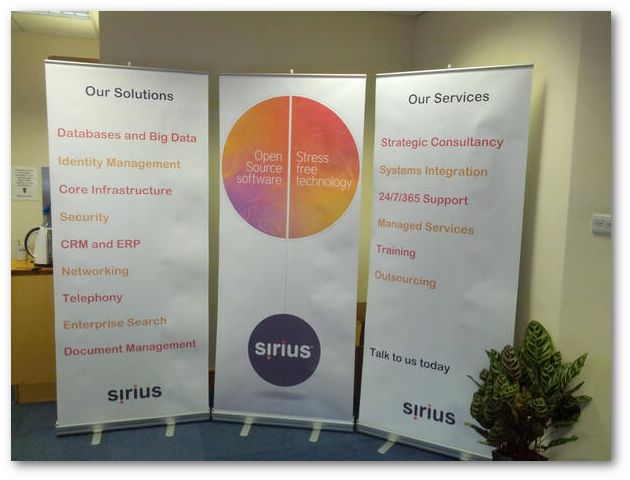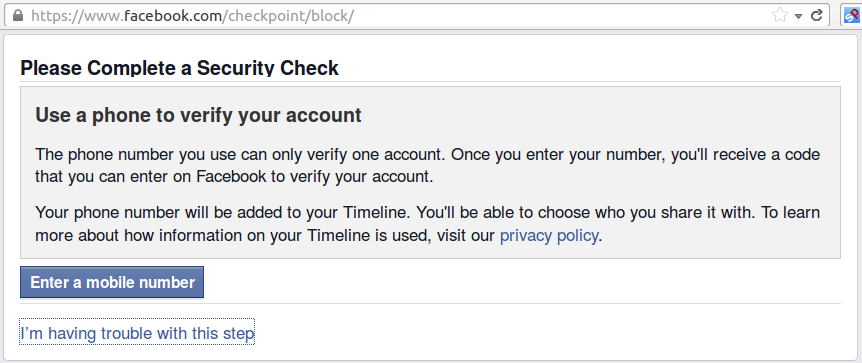When Your Company is Outsourcing Almost Everything
Does/did this happen in your company too? If so, read on…
Summary: Sirius ‘Open Source’ has not been keeping up with skills required to self-host, instead demonising/denouncing them as “hobbyist” (actual quote from the CEO) and eventually relaying almost everything to proprietary vendors that put gates and walls on Free software
TODAY we continue a couple of parts that deal with security and privacy issues at Sirius Open Source [sic] — a company that still says “Open Source” although it often recommends to clients that they adopt proprietary things.
Enough has been said already about the nature of the hypocrisy, the double standards, the dishonest marketing, lack of principles, and even some truly unethical clients. Below is part of the report deposited before my wife and I left the company1.
Outsourcing Concerns
Colleagues at Sirius have long worked weekends (unlike client’s staff, which is typically off work on holidays and weekends; there’s no 24/7/365 cover). Some of them finished or started working but could not access an essential gateway machine. When the client does something like an update or makes a release the IP addresses will change, so whenever there is an incident Sirius staff can’t restart, forcibly reboot or investigate the machines, that is unless — or otherwise — Sirius staff are informed (or wiki/documentation becomes up to date again). From what is known, this is more of this particular client’s choice, but Sirius lacks a loophole and that is why Sirius may seem sloppy or slow to update/notify their workers/employees.
This is a typical example of a lack of top-down coordination. How are staff expected to carry out duties if managers don’t do their part or fail to understand how these systems work? In fact, when outsourcing to any third party, this may be inevitable; the people who ‘manage’ the machines have almost no control over them. They merely rent some server space and the hypervisor may change over time, introducing unforeseen but unavoidable complication. This means server can become unavailable, with no resort at all (like accessing the datacentre/s). Back in 2011 and for several years after that Sirius had its own server racks and managed its own instances.
Sirius keeps recommending the outsourcing to proprietary software like AWS and Cloudflare, resulting (sometimes) in a lot of problems. Sirius itself pays in AWS bills almost as much as a small salary. Becoming an AWS ‘reseller’ makes Sirius far less competitive and vastly less unique; companies like these, including Rackspace, have their own support. They have their own ambitions of controlling everything themselves. Companies like Sirius should not become transient migrators. Sirius used to offer its own hosting.
This is one of many issues with “cloud computing”, including AWS, which also caused significant downtimes for that client (hours-long outages) — a client that used to have far more control over the hosting. When it comes to certification, the company actively encourages learning “cloud computing” stuff instead of “Open Source” stuff.
______
1 Many more details will be given, along with further analysis, when the whole report is published. Probably in January.






 Filed under:
Filed under: 
 AST year I wrote a rant about how
AST year I wrote a rant about how 
 ACEBOOK, the surveillance giant, is reaching new levels of creepiness. A friend of mine, who was apparently conformist enough to have ‘joined’ Facebook, sent me the screenshot above, translating it as follows:
ACEBOOK, the surveillance giant, is reaching new levels of creepiness. A friend of mine, who was apparently conformist enough to have ‘joined’ Facebook, sent me the screenshot above, translating it as follows:
 Y wife used to be using Facebook quite a lot. It’s a site that, in practice, probably violates people’s privacy more than all other sites combined, but only if one assumed loss of privacy to peers (as opposed to government spies and marketers, who also get data from Microsoft, Google, and countless other companies). Just over a year ago I suggested to my wife that she oughtn’t upload photos to Facebook (with some applications Facebook just uploads all taken pictures automatically) and that I can set up an album that would preserve some of her privacy (no tags, no face recognition, no covert tracking of viewers, etc.). Days ago I
Y wife used to be using Facebook quite a lot. It’s a site that, in practice, probably violates people’s privacy more than all other sites combined, but only if one assumed loss of privacy to peers (as opposed to government spies and marketers, who also get data from Microsoft, Google, and countless other companies). Just over a year ago I suggested to my wife that she oughtn’t upload photos to Facebook (with some applications Facebook just uploads all taken pictures automatically) and that I can set up an album that would preserve some of her privacy (no tags, no face recognition, no covert tracking of viewers, etc.). Days ago I  ulian Assange engages with John Pilger in conversation regarding Wikileaks. The privatisation of censorship is one of the first subjects to be addressed. It’s how the West and capitalist societies suppress speech. (
ulian Assange engages with John Pilger in conversation regarding Wikileaks. The privatisation of censorship is one of the first subjects to be addressed. It’s how the West and capitalist societies suppress speech. ( ack in the days, people created Geocities-hosted Web sites. Well, Yahoo! has axed it, shortly after getting abducted by Microsoft in fact, so Geocities is no more (although many sites similar to it still exist). I created my site there in 1997/1998 and a few years later I got interested in Open Diary, which in some sense resembles Live Journal. Further down the line there was the phenomenon of blogging, which started in particular sites like Blogspot and Blogger, among many more (some of them are not surviving well). Free software like B2 and WordPress soon filled a gap and enabled more and more people to take control of their blogging platform and also register their own sites for the purpose. Around the same time, sites like MySpace grew, but they soon perished mostly because of competition which included an extension to ‘people-indexing’ services (resembling classmates reunion sites). Facebook was prominent among those. For news and discussion people had Digg, Reddit, and several more large sites, Many experiments emulating the above failed miserably for reasons that would require a separate long post. Later on, in recent years, celebrities joined Twitter and helped it grow very quickly, along with Free software clones such as Identi.ca. What joins together many of those services and pieces of Free software one can download to substitute the hosted prison is that they provide people with a place to express themselves and also find out what others are thinking. The thoughts of others are sometimes expressed by citation (news) or multimedia. It all helps weaken the cetralisation of so-called ‘mass media’ and it empowers people. This is one of the better achievements of the Web — that alongside wikis such as Wikipedia, but that’s another category of sites and a subject for another day.
ack in the days, people created Geocities-hosted Web sites. Well, Yahoo! has axed it, shortly after getting abducted by Microsoft in fact, so Geocities is no more (although many sites similar to it still exist). I created my site there in 1997/1998 and a few years later I got interested in Open Diary, which in some sense resembles Live Journal. Further down the line there was the phenomenon of blogging, which started in particular sites like Blogspot and Blogger, among many more (some of them are not surviving well). Free software like B2 and WordPress soon filled a gap and enabled more and more people to take control of their blogging platform and also register their own sites for the purpose. Around the same time, sites like MySpace grew, but they soon perished mostly because of competition which included an extension to ‘people-indexing’ services (resembling classmates reunion sites). Facebook was prominent among those. For news and discussion people had Digg, Reddit, and several more large sites, Many experiments emulating the above failed miserably for reasons that would require a separate long post. Later on, in recent years, celebrities joined Twitter and helped it grow very quickly, along with Free software clones such as Identi.ca. What joins together many of those services and pieces of Free software one can download to substitute the hosted prison is that they provide people with a place to express themselves and also find out what others are thinking. The thoughts of others are sometimes expressed by citation (news) or multimedia. It all helps weaken the cetralisation of so-called ‘mass media’ and it empowers people. This is one of the better achievements of the Web — that alongside wikis such as Wikipedia, but that’s another category of sites and a subject for another day.